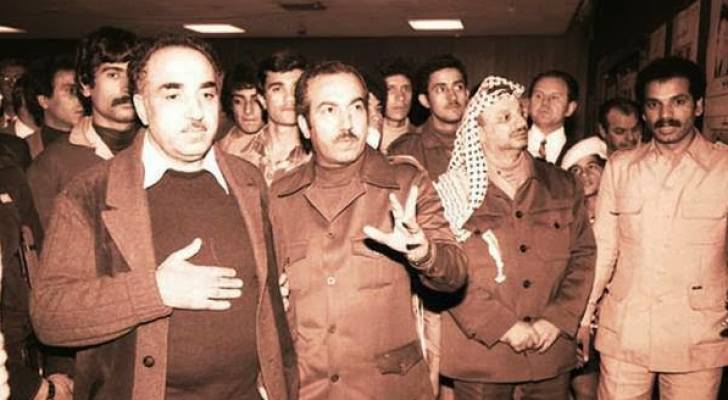Not the first time: 'Israel’s' recurring pattern of targeting peace negotiators
The world was stunned by 'Israel’s' assassination attempt on a Hamas delegation in Doha yesterday. However, history shows this is not the first time Israel has targeted peace negotiators.
Critics and analysts argue that a pattern of targeting key diplomatic figures, from Zionist paramilitary groups in the 1940s to the 'Israeli' state more recently, has consistently created vacuums in leadership and derailed peace processes at critical junctures.
Historical Assassinations of Key Mediators and Negotiators
1. Lord Moyne (1944)
Lord Moyne, the British Minister of State in the Middle East, was assassinated in Cairo in 1944 by the Zionist paramilitary organization Lehi.
Lord Moyne was seen by the Zionist underground as an obstacle to their political goals, and his death was a deliberate move to challenge the British Mandate.
2. Count Folke Bernadotte (1948)
Count Folke Bernadotte, a Swedish diplomat, was the first United Nations mediator in the Arab-Israeli conflict. On September 17, 1948, he was assassinated in Jerusalem by the same Zionist paramilitary group, Lehi, because his proposals for a peace plan were seen as detrimental to the establishment of a Jewish state.
3. Salah Khalaf (1991)
Salah Khalaf, known as Abu Iyad, was the second-in-command of the Fatah movement and a key figure in the Palestine Liberation Organization (PLO).
In the months leading up to the Madrid Peace Conference in 1991, he was assassinated in Tunis on January 14, 1991.
His death is believed to have weakened the Palestinian negotiating position and paved the way for the less stringent terms of the Oslo Accords a few years later.
4. Ismail Abu Shanab (2003)
Ismail Abu Shanab, a senior political leader of Hamas, was viewed as a potential moderate who could have helped secure a long-term ceasefire with 'Israel'.
He was killed by an 'Israeli' helicopter strike in Gaza on August 21, 2003, at a time when negotiations were at a critical stage.
His death was widely seen as a blow to the more moderate faction within Hamas and effectively ended the peace efforts at the time.
Recent Assassinations and Failed Negotiations.
The pattern of targeting figures linked to negotiations has continued in recent years:
5. Ahmed al-Jabari (2012)
Ahmed al-Jabari, the head of Hamas's military wing, was killed by an 'Israeli' airstrike on November 14, 2012, which marked the beginning of 'Israel's' "Operation Pillar of Defense."
While he was 'Israel's' "most wanted" militant leader, he was also a key figure in the 2011 negotiations that led to the detainees exchange for captured 'Israeli' soldier Gilad Shalit.
Reports indicate he was also involved in talks for a long-term ceasefire with 'Israel', having received a draft of a truce agreement just hours before his assassination.
6. Saleh al-Arouri (2024)
Saleh al-Arouri, the deputy leader of Hamas, was assassinated in an 'Israeli' strike in Beirut in January 2024.
Al-Arouri was a key link between Hamas and Iran and Hezbollah. Still, he was also a core member of the Hamas negotiating team that engaged in talks brokered by Qatar, which led to the release of some of the hostages.
Following his assassination, Hamas announced it would freeze all discussions on a Gaza ceasefire and hostage exchange.
7. Doha Delegation (2025)
Most recently, 'Israel' carried out an unprecedented airstrike in Qatar on September 9, 2025, directly targeting a residential compound housing the Hamas leadership delegation that was meeting to discuss a new ceasefire proposal.
The strike killed several Hamas members, including the son of a key negotiator, though the primary targets of the strike, including Hamas's chief negotiator, Khalil al-Hayya, survived the assassination attempt.
Both Qatar and the US condemned the strike, with the White House stating that the operation "ran counter to President Donald Trump's efforts to achieve peace in Gaza."
These incidents, spanning decades, are cited by critics as evidence of a pattern in which diplomatic efforts have been met with violence, often with the effect of derailing peace initiatives and reinforcing a cycle of conflict.




